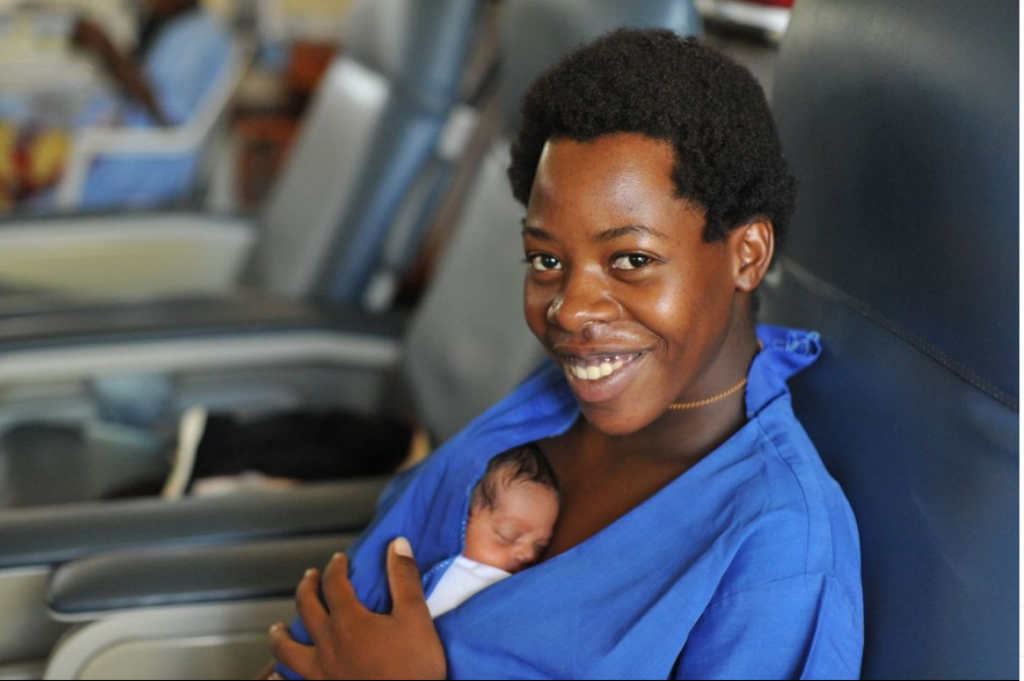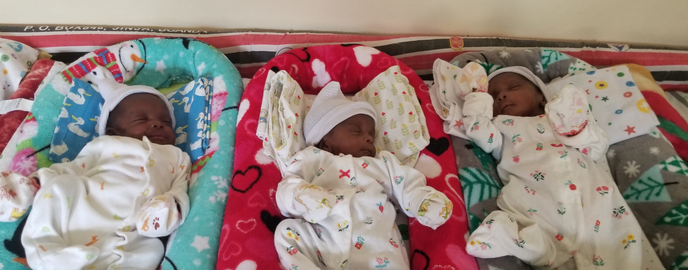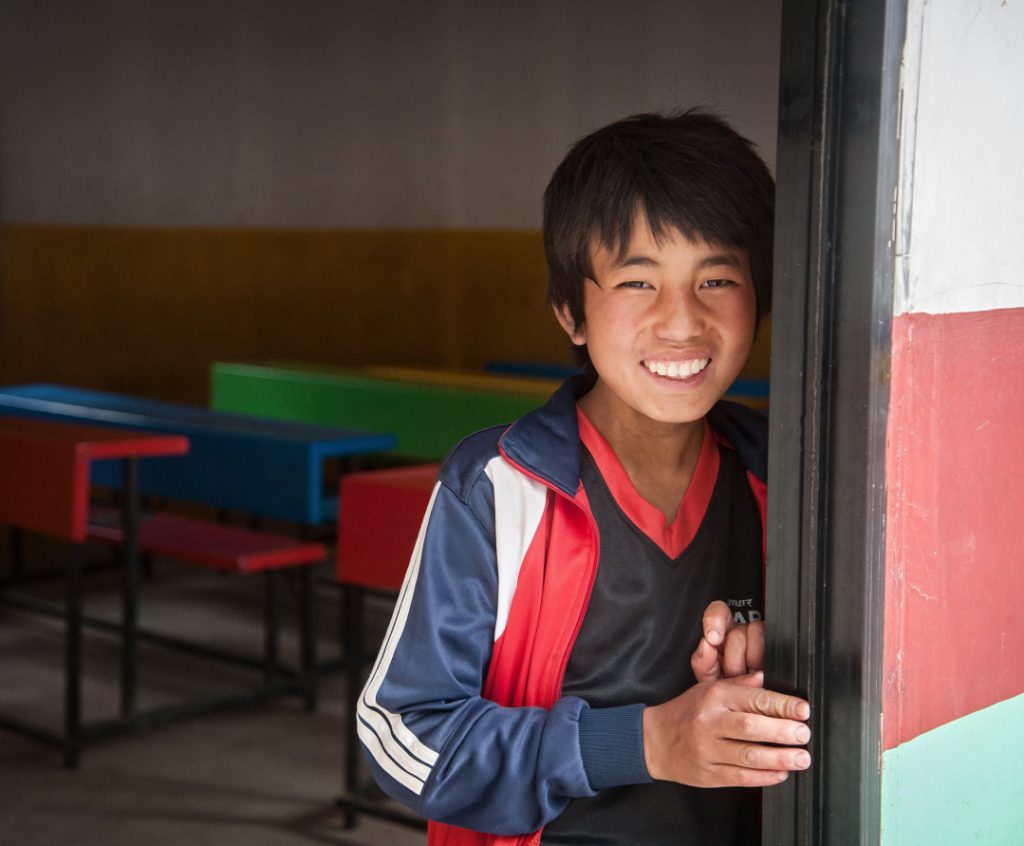“At first, I did not know that I was having quadruplets,” Justine Okello says. “The first time we went for a scan, I was told I had four gestation sacs and I was so surprised because it was something very rare.”
While Justine and her husband Samuel were initially thrilled about Justine’s pregnancy, they became nervous when they learnt they would be adding not one, but four babies to the family.
“I wondered how we were going to take care of these children since both of us are teachers and we were not working because of the lockdown, and we already had two children.”
Justine and Samuel live on the UgandaSudanese border where access to healthcare is limited. As Justine’s pregnancy progressed, she began to experience frequent bleeding that meant she had to regularly travel to a hospital 65km away.
Multiple births can be scary anywhere in the world. But in low-resource settings, it almost invariably means loss of lives for babies, mothers, or both. Justine and Samuel knew that they would require specialised medical attention at birth. To give their little ones the best possible start to life, they began learning all they could about delivering and caring for quadruplets.
“We went to the internet and logged into apps about multiple pregnancies,” Samuel explains. “And we enrolled on other online systems where people have four babies and we saw their experiences and they kept advising us about what happened to them and what they did about it. Then, because I was helpless, I started looking for where I could get help and who could support us.”
This led Samuel to get in touch with a woman in the US, Mary Slaman, Founder and President of The Twin to Twin Transfusion Syndrome Foundation.

Mary promised to support Samuel and Justine to find a facility that was equipped to care for them. And that was how they learnt about Adara and Kiwoko Hospital.
The next morning, Justine went into labour. She was only six months pregnant.
In the early hours of the morning, Justine and Samuel welcomed four babies into the world. They were all very small, ranging in size from 700g to 900g.
“They all came out and what looked like a dream now became a reality,”
Samuel
Samuel says. The babies were immediately rushed to the NICU so the staff could provide them with specialised care. Within days, the babies started to improve, except for one – the second born – who was struggling. Sadly, on her third day of life, she passed away, despite staff’s best efforts to help her survive.
The remaining three continued to grow and develop until they could eventually go home after 51 days at Kiwoko Hospital. At discharge, the babies all weighed between 1.55kg and 1.88kg.They were still small, but were breastfeeding well, so Justine was confident they would continue to thrive.
Now, Samuel and Justine have big hopes for their children. “It is our responsibility as parents to care for the children,” Samuel says. “I even told my wife that I pray that when these children grow up, they all become medical workers.”
These quadruplets are four of the 1,290 newborns who received care in the Kiwoko NICU in 2021. They are four of the 200,000 people who Adara reached in 2021, and every single one of them matters.
The Kiwoko Hospital NICU continues to be a beacon of hope for countless families across Uganda.

